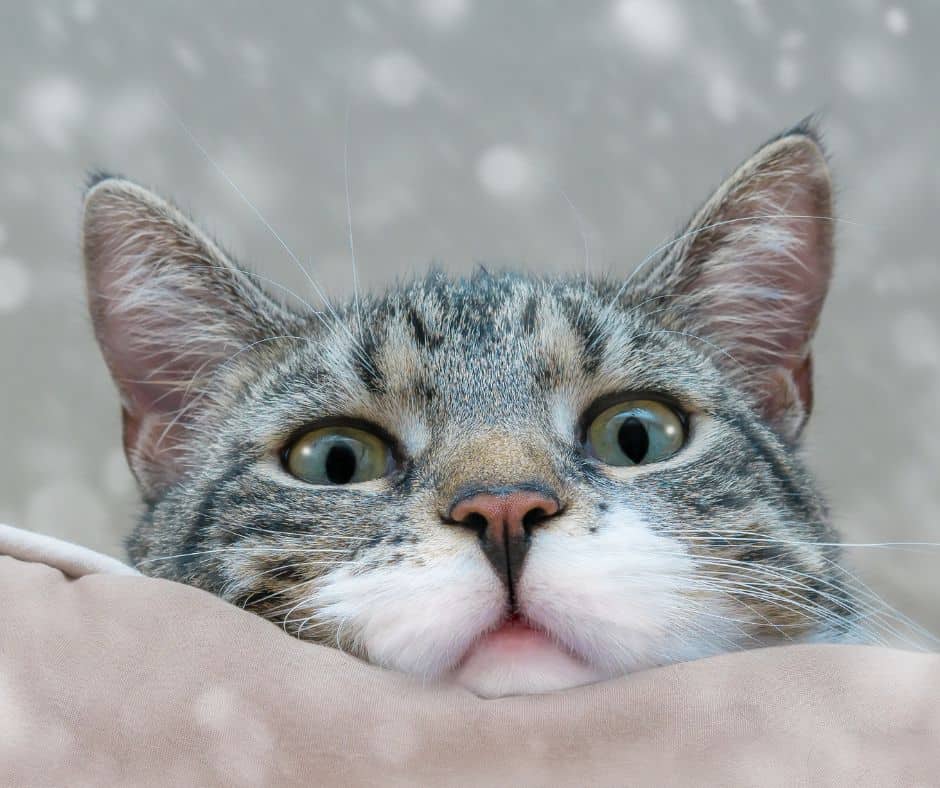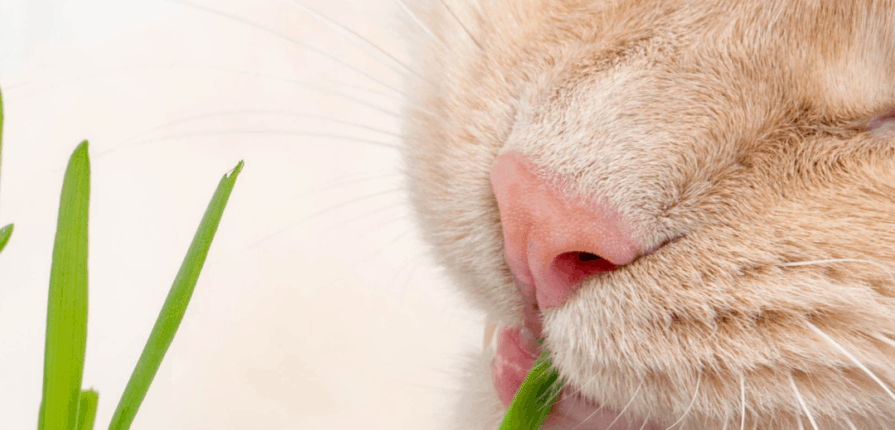𝐕𝐨𝐦𝐢𝐭𝐢𝐧𝐠 𝐢𝐧 𝐂𝐚𝐭𝐬: why it happens and what to do
Our kitty parents asked for a primer on vomiting in cats, and we’re here to deliver!
Cats and their hairballs. Oh boy, finding those in your favorite pair of shoes is the best! /s Fun fact, vomiting is pretty common in cats, be it from hairballs, or just like us- from overeating or eating something that doesn’t agree with them, so you may deal with it fairly often as a kitty parent.
/s Fun fact, vomiting is pretty common in cats, be it from hairballs, or just like us- from overeating or eating something that doesn’t agree with them, so you may deal with it fairly often as a kitty parent.
Vomiting itself is not a specific disease. If your cat is vomiting a hairball occasionally, like once a month, and is otherwise healthy, your cat is most likely fine. Also, when your cat shows signs of sudden (aka acute) vomiting, the episode might just pass on its own. It’s always important to keep track of changes in your kitty’s health, though and to contact your veterinarian with any changes (for example, if your cat starts vomiting hairballs daily/weekly).
How can you tell when your cat’s vomiting is a problem?
If your cat suffers from routine vomiting, you definitely should seek your veterinarian’s advice. Recurring, chronic vomiting episodes could be a sign of a serious problem and may also cause dehydration and imbalances in their electrolytes. It’s important to pinpoint the cause of the vomiting in order to quickly treat it. Cats are very sensitive creatures and need to be monitored!
𝐑𝐞𝐚𝐬𝐨𝐧𝐬 𝐚 𝐜𝐚𝐭 𝐯𝐨𝐦𝐢𝐭𝐬 𝐚𝐜𝐮𝐭𝐞𝐥𝐲/ 𝐬𝐮𝐝𝐝𝐞𝐧𝐥𝐲:
𝐂𝐡𝐫𝐨𝐧𝐢𝐜 𝐜𝐚𝐮𝐬𝐞𝐬 𝐨𝐟 𝐜𝐚𝐭 𝐯𝐨𝐦𝐢𝐭𝐢𝐧𝐠:
𝗪𝐡𝐞𝐧 𝐭𝐨 𝐭𝐚𝐤𝐞 𝐲𝐨𝐮𝐫 𝐜𝐚𝐭 𝐭𝐨 𝐭𝐡𝐞 𝐯𝐞𝐭:
Always make sure your kitty has water available to prevent dehydration. Talk to your veterinarian about how to offer food after vomiting. Typically though, if the kitty’s health is improving you can gradually increase their food to a normal quantity over days.
Kitties need a lot of care- contrary to their aloof/independent stereotype. That’s why we require daily cat sits when kitty parents go on vacation. As cat sitters and kitty parents ourselves, we don’t believe cats should be left alone when people leave on vacation since so much can happen in one day. So, be on the lookout for any changes in your fierce felines to keep them safe! We always do for our clients! 


Remember: It’s important to note that vomiting is very different from regurgitation! You should let your veterinarian know which is occurring as they have different causes and treatments. Vomiting uses effort to bring food/liquid up (you can see the dog using its stomach muscles and actively retching). Regurgitation is involuntary and will usually not have digested food. Regurgitation looks more like a dog burping up material, with no effort, and it generally comes from problems dealing with the esophagus versus the stomach.
Coughing is also different. Cats can cough up some foamy material that they subsequently swallow. Sometimes we mistake it for vomiting, but cats may crouch down on all four legs when coughing with the neck stretched out. Record the behavior and send it to your veterinarian for more help when in doubt.


